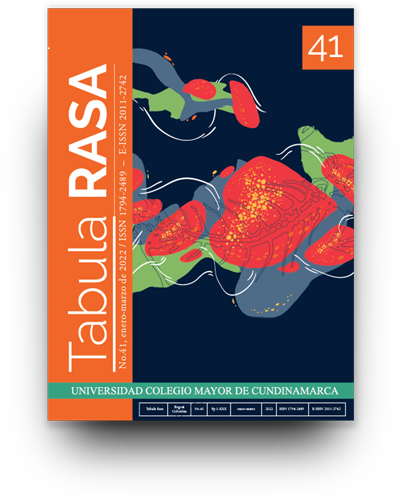The ethics of care and the construction of peace : re-existence strategies among black rural women in Ladrilleros and Juanchaco, municipality of Buenaventura.
La ética del cuidado y la construcción de paz : estrategias de re-existencia de las mujeres negras y rurales de Ladrilleros y Juanchaco en el municipio de Buenaventura..
Show authors biography
This article stems from the research project “Female bodies and power in Colombian Pacific: The case of Women’s Association Ébano (Ebony)”, carried out in Ladrilleros and Juanchaco, at the town of Buenaventura. This work inquired over women’s cultural breakups driven by the arrival of groups alien to their communities throughout the last 70 years. By fighting over a place in the territory, those groups pushed shifts in their forms of cultural socialization and economic organization. By applying the techniques of life histories and body-mapping, we analyzed the different ways in which women have resisted those shifts in their cultural dynamics, with Ebony being an ultima example of agency strategies deployed by women. This article addresses the discussion of these research results in the light of the role of caregiving in Black rural women’s agency strategies in the Colombian Pacific throughout the time of Peace Accords undersigned in 2016.
Article visits 156 | PDF visits 93
Downloads
- Agudelo, C. (2001). El Pacífico colombiano: de «remanso de paz» a escenario estratégico del conflicto armado. Las transformaciones de la región y algunas respuestas de sus poblaciones frente a la violencia. Cuadernos de Desarrollo Rural, 46, 7-37.
- Borgeaud-Garciandía, N. (2009). Aproximaciones a las teorías del care. Debates pasados. Propuestas recientes en torno al care como trabajo. Revista Latinoamericana de Estudios del Trabajo, 22, 137-156.
- Fanon, F. (1986). Black Skin, White Masks. London: Pluto Press.
- Galindo, M. (2019). Viviendo con el mar: inestabilidad litoral y territorios en movimiento en La Barra, Pacífico colombiano. Revista Colombiana de Antropología, 55(1), 29-57.
- Gonzáles, L. (2021). Informe sobre presencia de grupos armados. Informe sobre la presencia de grupos armados en Colombia. Indepaz. http://www.indepaz.org.co/wp-content/uploads/2021/10/INFORME-DE-GRUPOS-2021.pdf
- Ibarra, A. Domenech, G. (2021). Ochy Curiel: “Nosotras soñamos con salvar a pueblos enteros, no sólo a mujeres”. Rialta Magazine.
- Mbembe, A. (2006). Nécropolitique. Raisons Politiques, 21(1), 29-60.
- Moreno, M. (2020). Del cuerpo-territorio como re-apropiación para re-existencias emancipatorias. Reflexiones Marginales, 57. https://revista.reflexionesmarginales.com/delcuerpo-territorio-como-re-apropiacion-para-re-existencias-emancipatorias/
- Quiroz, L. (2020). La sanación, un acto feminista emancipatorio (Lorena Cabnal). Hyphotheses. https://decolonial.hypotheses.org/2147
- Restrepo, E. & Rojas, A. (2004). Conflicto e (in)visibilidad Retos en los estudios de la gente negra en Colombia. Popayán: Editorial Universidad del Cauca.
- Wynter, S. (2015). The ceremony found: Towards the autopoietic turn/over-turn, its autonomy of human agency and extraterritoriality of (self-)cognition. En: J. Ambroise & S. Broeck (Eds.). Black Knowledges/Black Struggles : Essays in Critical Epistemology. Liverpool: Liverpool University Press.
- Villarraga, A. (2013). Desafíos para la reintegración: enfoques de género, edad y etnia. Centro Nacional de Memoria Histórica. https://centrodememoriahistorica.gov.co/desafios-para-la-reintegracion-enfoques-de-genero-edad-y-etnia/




